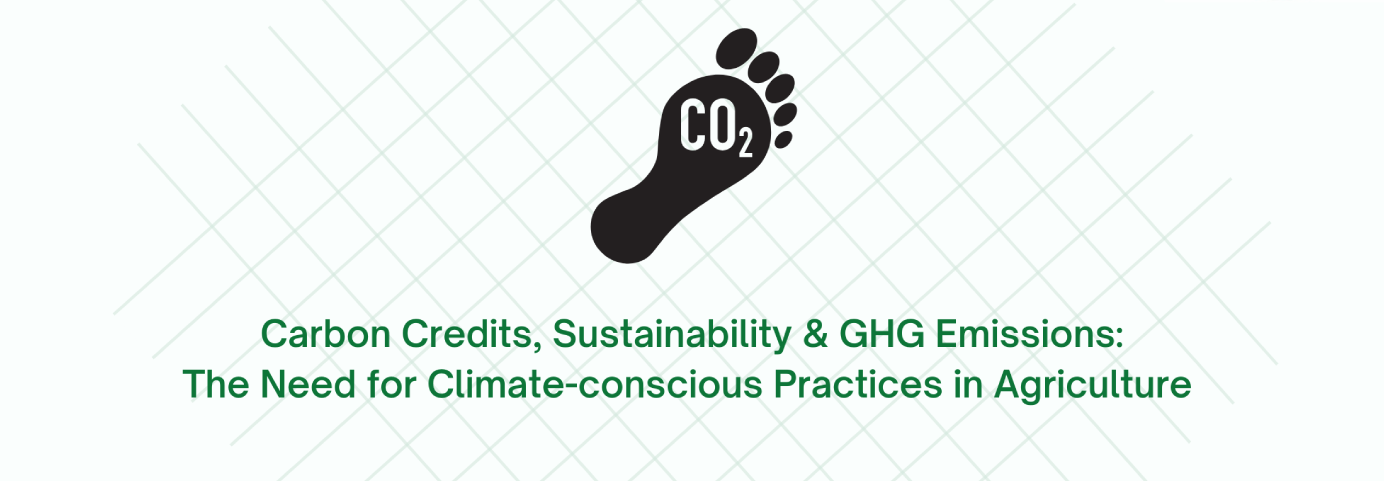


Jul,2022
With each passing year, conversations around climate change and sustainability have been increasing significantly. While many still refuse to believe in the gravity of the situation, research and scientific observations seem to prove otherwise. When a layman thinks of industries that cause significant pollution, they are likely to think of industries such as manufacturing, energy, and transport. However, what many may not know, is that along with these industries the agricultural sector is also one of the largest contributors to greenhouse gas emissions.
The agriculture industry is a huge contributor to global greenhouse gas emissions. In fact, It alone accounts for 45% of the total methane, and 80% of the total nitrous oxide emissions globally! While there are several activities in agriculture that cause massive GHG emissions; enteric fermentation, forestry & land-use change, and the use of synthetic fertilizers are some of the major factors that contribute to this number.
Although it is difficult to quantify the exact amount of emissions caused by agricultural activities, it is estimated that the total agri-food systems were responsible for 16.5 billion tonnes of GHG emissions in 2019 alone. Out of these 7.2 billion tons came from inside the farm gate, 3.5 came from land-use change and 5.8 billion came from supply chain processes.
Another major (and potentially avoidable) factor that contributes to GHG emissions is the problem of food loss and wastage. It is estimated that approximately one-third of all food produced is never consumed! In many cases, this loss is caused due to inefficient supply chain during production, a lack of proper transportation and storage facilities and a lack of access to technology.
The reduction of food loss and waste is extremely crucial to meeting the targets of the 1.5°C pathway. In order to meet the targets, it is estimated that global food loss and waste will have to fall below 30 percent by 2030 and 20 percent by 2050.
Achieving these targets has to be a top priority for all organisations and individuals alike. Therefore, there needs to be a change in the existing agricultural supply that can help in the reduction of food waste and, by extension, overall GHG emissions.
At go4fresh, we use technology to enable effective & efficient market linkages. Our model is based on the philosophy of “Kissan Se Dukaan Tak, connecting farmers to buyers & businesses.” Through our model, we are able to minimise the handling of products and the number of exchanges that happen. In addition to this, we ensure that majority of our produce is properly graded, sorted and packaged before it reaches the buyer. This allows us to reduce the amount of wastage due to improper handling and packaging of produce. Furthermore, we also emphasise on the importance of effective planning of deliveries by leveraging technology, which allows us to reduce our emissions and carbon footprint.
At go4fresh, we work closely at the farm level with fresh fruits & vegetable farmers & aggregate the produce through our multiple farm collection centres across India. Through these centres, we directly or indirectly interact with several farmers every day (most of whom are small & marginal in size). In the past, we have supported marginal communities in the successful adoption of sustainable practices at the farm and supply chain levels. These capacity-building projects were supported through grants and funds from reputed development agencies, social impact funds, CSR funds & research organizations.
However, regular stakeholder interactions have revealed that the majority of the value chain actors are totally unaware of the consequences of agricultural activities and their correlation with related emissions. This knowledge gap is quite big and very difficult to bridge without the cooperation & collaboration of multiple agencies. This has prompted us to develop a simpler tool to measure, reduce & track emissions.
In the past, we have received mandates from supporting organizations, and now we look forward to involving many more through an open collaborative platform. We hope to make a bigger impact by creating awareness and training small farmers on climate-smart sustainable farming practices & monitoring activities that will not only help them reduce their emissions but also gain carbon credits.
While the concept of carbon credits is still quite nascent in India, the government is also trying to develop the digital infrastructure that will allow farmers to claim and generate carbon credits for using sustainable agricultural practices. This could be a revolutionary development in the Indian agriculture industry and can help farmers become more financially secure.